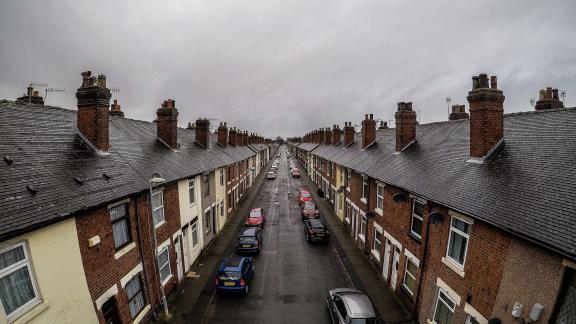Health disparities white paper: parliamentary briefing
Key points
- Health disparities in England were widening before the pandemic and risk becoming further entrenched in society if appropriate action is not taken urgently.
- With a significant and growing gap in life expectancy between the country’s most and least deprived areas, we need to create opportunities for local health and care systems to drive population health improvement.
- This briefing lays out four key priorities the government must include in the upcoming health disparities white paper: health equity in all policies, incentivise prevention, inclusive innovation, integration and access and action on the cost-of-living crisis for communities.

Health equity in all policies
What NHS leaders want to see from the white paper:
- An obligation for public bodies to judge the potential mental and physical health effects of policy, programmes and projects.
Up to 80 per cent of what affects both mental and physical health is from outside of the health system. A person’s health is determined by the broader environmental and social context they live in. The COVID-19 pandemic highlighted that this relationship is symbiotic.
To improve health outcomes and reduce inequities, the white paper must mandate that all government departments consider (and justify) the differential mental and physical health impacts of their policies by producing health equity impact assessments.
The NHS Confederation is part of the Inequalities in Health Alliance, a coalition of over 200 healthcare organisations, is calling for a cross-government strategy to reduce inequalities.
Including a recommendation to adopt a ‘health equity in all policies’ approach will ensure that the white paper looks beyond the health sector embedding this within the levelling-up agenda will help to shift the focus to a longer-term sustainability and preventative approach to policymaking.
Incentivise prevention
What NHS leaders want to see from the white paper:
- Integrated Care System (ICS) governance and funding structures that incentivise prevention by allocating resource according to need and deprivation.
- Long-term integrated funding for evidence-based public health activities.
- Commitment to funding for primary care networks (PCNs) and their services beyond 2024.
- The use of structural and regulatory levers to create a healthy society, for example as suggested in the food and tobacco reviews.
The public health grant has been cut by 24 per cent in real terms per capita since 2015/16. During this time, inequalities in outcomes have continued to increase, and the healthy life expectancy gap is now nearly 20 years between the most and least deprived areas of the country. In addition, PCNs have currently not had their funding secured beyond 2024.
The recent Spending Review failed to commit to a real-terms increase in the public health grant and soaring inflation rates mean the Spending Review’s commitments represent a significant real-terms cut in funding. The white paper must reinstate real-terms funding increases at the level seen before 2015/16 to restore the crucial support offered by public health experts at a local level to address health inequalities and include a commitment to funding for PCNs and their services beyond 2024.
Long-term funding for evidence-based public health interventions will allow local leaders to prioritise tackling health inequalities and shift the focus towards prevention and away from acute and crisis care. It is by shifting focus to prevention at population level, and applying system-level levers such as levies, nudges and taxes, that the underlying causes of health inequalities can be addressed.
Inclusive innovation, integration and access
What NHS leaders want to see from the white paper:
- Government to enable inclusive access to healthcare by closing the digital gap and providing ‘health on the high street.’
- Integrated patient data systems to flag high-risk individuals.
The COVID-19 pandemic accelerated progress towards the NHS Long Term Plan’s 2019 targets to increase the availability of digitally enabled care. For instance, remote consultations more than doubled from 30 per cent of all GP appointments pre-pandemic, to 70 per cent during the first lockdown of 2020. However, the change did not happen equitably. Around 1.7 million households in the UK do not have internet access and digital services must be safeguarded against driving further inequality. To close this digital gap, the government must outline funding to provide internet to those without access, so that the benefits of a digital NHS are available to all.
Innovation must not come at the price of patient choice and remote care is not the only innovative mode of delivering care post-COVID-19. Providing health services on the high street creates a more easily accessible option in addition to remote care and traditional clinical settings, particularly for those with limited means or mobility issues. This initiative should be expanded with a focus on the country’s most deprived wards to improve access to services, while minimising travel costs and maximising convenience.
The government must also set out its refreshed plan to engage the public and industry to implement a population health management approach to data, which begins in primary care. An integrated general practice dataset will provide a single, secure system to identify and protect high-risk individuals before symptoms begin, but previous iterations have been scrapped after industry experts flagged privacy flaws.
Action on the cost-of-living crisis for communities
What NHS leaders want to see from the white paper:
- Cost-of-living support to be targeted to people with the greatest need.
- Tackle in-work poverty to improve health.
- A 4 per cent pay rise for the lowest paid NHS staff and a national care worker minimum wage of £10.50.
- Bespoke support for communities living in the most deprived areas of the country.
The link between poverty and ill health is well-evidenced: for babies born between 2018 and 2020, the healthy life expectancy gap between the best- and worst-off areas of the country stands at 19.3 years for girls and 18.6 years for boys.
One in five Britons is currently struggling or unable to make ends meet, with 5 per cent often having to go without essentials like food or heating. Government support on the cost of living to date has been insufficiently targeted. Better targeted support to those who need it most in our communities will be essential to ensuring that the resources are spent where they are needed the most, so that no one has to choose between eating and heating.
The NHS is the largest employer in Europe, and good work has strong links to improving health outcomes. We urge the Department of Health and Social Care (DHSC) to give a higher pay rise than last year to health service staff on the lowest full-time pay. NHS leaders want to see the Department of Health and Social Care commit to a 4 per cent pay rise for all NHS staff at Band 2 contracts (~£18,870 per year) and for staff on similar salaries in primary care, such as general practice receptionists. This funding increase must be fully funded by the Treasury.
Social care staff are crucial to a functioning healthcare system and must also be protected from the rising cost of living. Vacancy rates in the care sector are at 10 per cent, with staff leaving for better paid roles in other sectors. Healthcare leaders are increasingly concerned about the impact on the whole health system of workforce shortages in social care. We are calling for the immediate implementation of a national care worker minimum wage of £10.50 an hour. This has already been introduced by the Scottish government.
Suggested questions for Secretary of State
- To ask the Secretary of State for Health and Social Care, what discussions he has had with the Chancellor of the Exchequer ahead of the publication of the health disparities white paper?
- To ask the Secretary of State for Health and Social Care, whether he plans to extend funding for Primary Care Networks (PCN) beyond 2024?
- To ask the Secretary of State for Health and Social Care, what discussions he has had with the Chancellor of the Exchequer regarding health and social care staff pay?
- To ask the Secretary of State for Health and Social Care, how many times the Health Promotion Taskforce has met in the last 12 months?
- To ask the Secretary of State for Health and Social Care, what discussions he has had with the Secretary of State for Digital, Culture, Media and Sport about digital exclusion and the impact on health outcomes?
- To ask the Secretary of State for Health and Social Care, what funding his department will provide for the implementation of the independent tobacco review, following his acceptance of the amendments in full?
- To ask the Secretary of State for Health and Social Care, what discussions he has had with the Secretary of State for the Environment, Food and Rural Affairs regarding the independent National Food Strategy?
- To ask the Secretary of State for Health and Social Care, what representations he has made to the Chancellor of the Exchequer ahead of the Autumn Budget with regard to the health impacts of the cost-of-living crisis?



